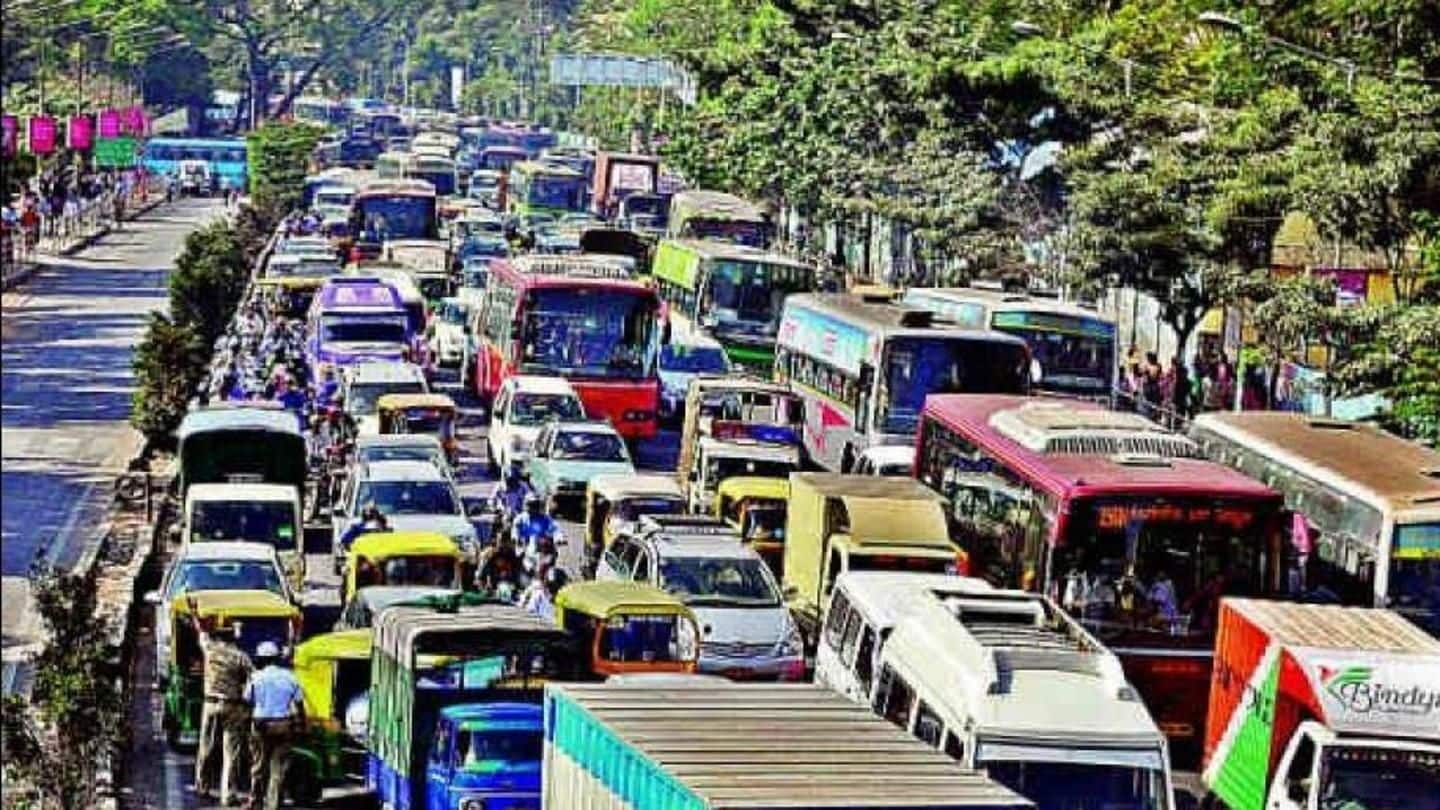
Ever-increasing congestion woes: Bengalureans take almost 1hr to cover 16kms!
What's the story
Close on the heels of the Uber-commissioned Boston Consulting Group report that termed Bengaluru as one of the worst congested cities in India, comes another report putting India's Silicon Valley in the dock.
This report says that average travel time in the city has increased by three minutes (one-way travel) or 6% in 2018 Q1, as compared to the same time period in 2017.
Results
Not surprisingly, ORR Doddanekundi, Whitefield areas worst hit
This means to cover 16kms, Bengalureans take almost an hour, 40minutes extra than the expected time.
City-based MoveInSync, an office commute automation platform, compiled the report after studying 11 lakh shared rides between January and March this year.
Taking into account 11 office hubs in Bengaluru, the report noted that ORR (Outer Ring Road) Ecoworld, Whitefield areas and ORR Doddanekundi are the worst hit.
Office areas
Doddanekundi, Prestige Tech Park most congested areas in city
Doddanekundi has offices of Dell EMC, Samsung, ARM, Visa, AB Inbev, Ericsson etc., and so its fall from last year's 4th position to this year's last rank doesn't come as a shock.
Similar to Doddanekundi, Prestige Tech Park on ORR that hosts offices of companies like JP Morgan and Oracle, too dropped from number 1 (2017) to number 6 this year.
Information
'Losing two-and-a-half hour per month affects productivity'
Though the extra six minutes (two-way travel) may seem minuscule, but losing that time each day for 22-25 working days amounts to losing a significant 2.5hours of one's time, said Deepesh Agarwal, co-founder & CEO, MoveInSync. This affects productivity and quality of life, he added.
Problems
Never-ending construction creating bottlenecks in city: Report
The Uber report pointed out that though Bengaluru is less populated than Delhi or Mumbai, it was still congested because instead of focusing on infrastructure improvement, authorities are building more rail lines.
This report somewhat echoed that.
It said 'infrastructure development projects in the city' are never-ending, and suggested the government should stop that and build more roads to address traffic-related woes instead.